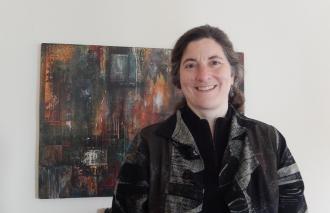Little is certain for those returning to UC Berkeley for the upcoming semester. From fluctuating campus policies to the uncertain state of clubs and activities, the fall semester and fully remote operations are certain to be a testing ground for the longevity and adaptability of many longstanding university traditions and institutions.
This is certainly true for the Pacific Film Archive — a staple in Berkeley’s art scene and nightlife since it integrated with the Berkeley Art Museum in 1971. Once regularly filling its 230-seat theater and hosting more than 500 programs a year, BAMPFA has had to close its physical location indefinitely and cease its in-person operations due to the COVID-19 pandemic. The precariousness of the museum’s operations in this state is not lost on Susan Oxtoby, the museum’s director of film curation.
“I don’t see us opening before the end of 2020, … more likely, not until there’s a vaccine,” Oxtoby reported in an interview with The Daily Californian, echoing a harsh reality that many nonprofit arts institutions now face. “Institutions like BAMPFA receive so much cultural support to put on activities, as a nonprofit. It’s perhaps not as hard off as an independent art house, … (but) we’re all in a hard situation.”
For the artistically inclined among the student body, however, there may still be some reason to rejoice. Oxtoby sees the closures as an opportunity to innovate the way BAMPFA delivers programming to its community, citing the practical benefit to shifting to online operations: “We look at virtual cinema as a way of trying to reduce our budget from the events we would put on in person, and at the same time we’re trying to bring in revenue from our virtual cinema offerings.”
The online format, of course, presents its own challenges — such as digitizing physical film reels and obtaining the rights to curate films digitally. “It’s all getting a little technical,” she jokingly warned, but this has yet to deter Oxtoby from trying. “As this period of our closure continues, … I think some of our programming will become more and more sophisticated or complex or allow us to share things that are very rare with the public.”
Oxtoby is especially excited for the opportunities the digital format presents to introduce these rare pieces to a potentially wider audience. One program that she is especially enthusiastic about is the documentary “I Am Somebody,” part of a larger series on director and civil rights activist Madeline Anderson. Celebrated for its historical significance, the film is also a deceptively ambitious dissection of early feminism’s intersection with the Civil Rights Movement. Like much of its “Watch From Home” series, “I Am Somebody” and the rest of the Madeline Anderson Spotlight is free to stream on the BAMPFA website.
BAMPFA also continues its long tradition of hosting conversations with filmmakers, critics and historians, work that Oxtoby considers key to the art museum’s public mission. The most recent of these centers on “John Lewis: Good Trouble,” a moving biopic on the life of the congressman and activist. The talk features filmmaker Dawn Porter, whom Oxtoby spoke of as an old friend. “For a period of time back in 2015, she was teaching at the (School of Journalism) here on campus. … She’s just amazing.” The conversation is free to stream from the art museum’s YouTube channel, and the film is available to rent on the BAMPFA website.
But though her enthusiasm for this programming is evident, it’s clear that Oxtoby’s favorite part of her job is in directly working with the student body. In reflecting on the film archive’s importance to campus culture, she said, “I often meet graduates who had attended a lot of screenings at BAMPFA, then realize that now they’re living in a large city somewhere else, and they don’t have that same access anymore.”
To this end, BAMPFA plans to continue all of its student activities in a virtual format. “We have the BAMPFA Student Committee and it’s still possible for students to get involved. … (It’s) really wonderful because we attract people who are really keen on art or film, some on performance,” Oxtoby said. She’s particularly optimistic about Cine/Spin, an event conceived of and run by the committee. “We show a film that can be shown without its original soundtrack, like a silent film or a foreign language film, and then DJs and live performers come in and perform the score.” The committee also has plans to continue its annual spring film festival — an event that took place online last May without major hiccups.
Despite the closure of the film archive’s physical location, Oxtoby and company are sure to continue providing content to the campus community as long as there’s an audience for it. There’s a certain pride that Oxtoby finds in confronting and overcoming the difficulties presented by social distancing. “I think we have probably the most dynamic year-round screening programs of any … well, certainly of any university in the States. But it’s so important to think of how important BAMPFA is for students attending Berkeley,” she explained. “Just the fact that we have the Berkeley Art Museum and a really active theater and film archive … it’s just a really great resource to have.”
Olive Grimes covers film. Contact them at ogrimes@dailycal.org. Tweet them at @ogrimes5.
